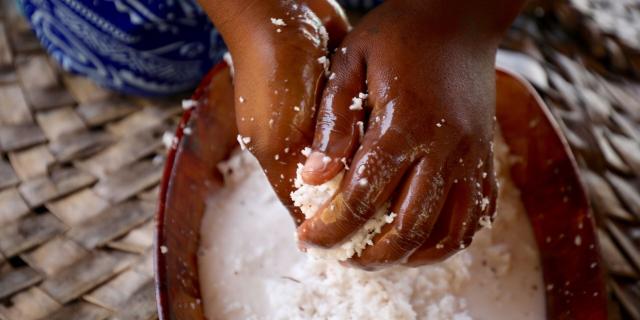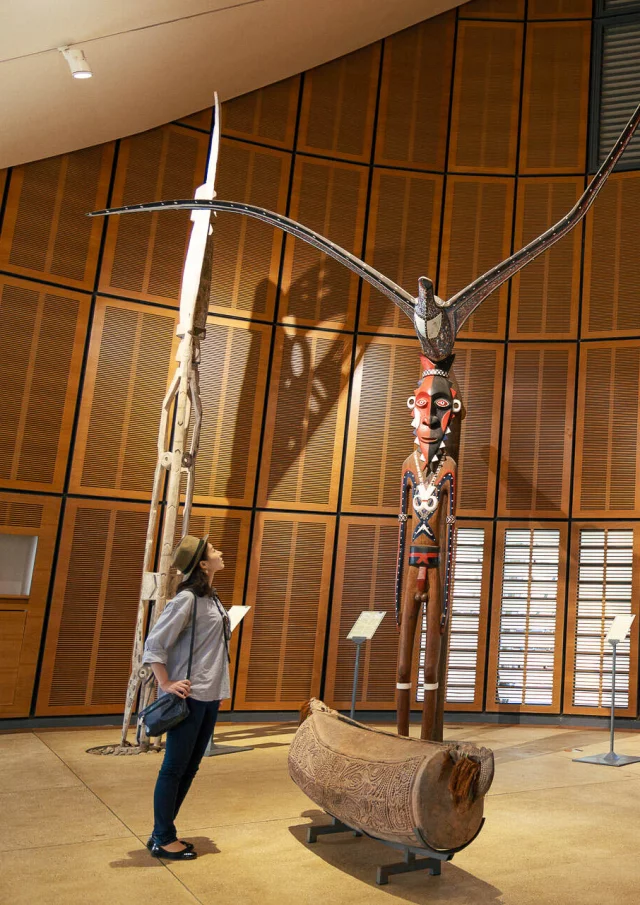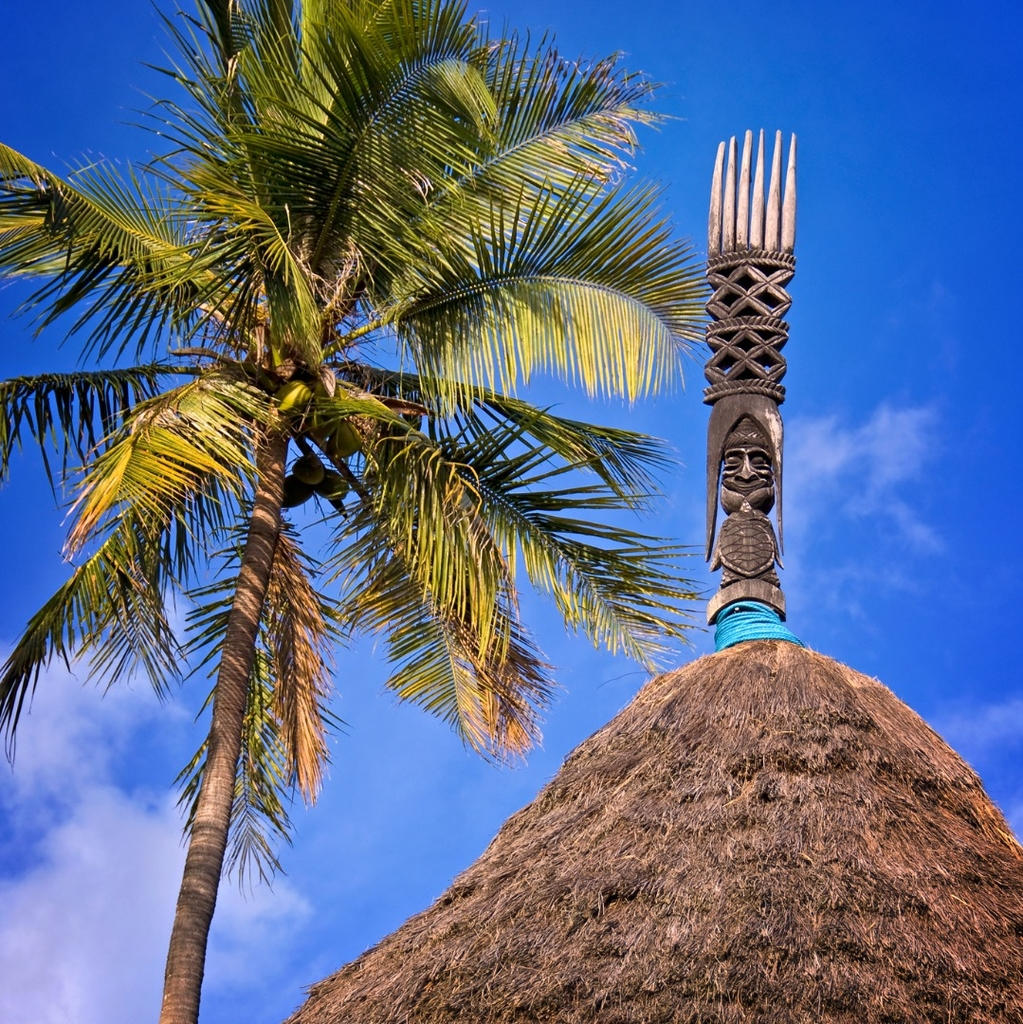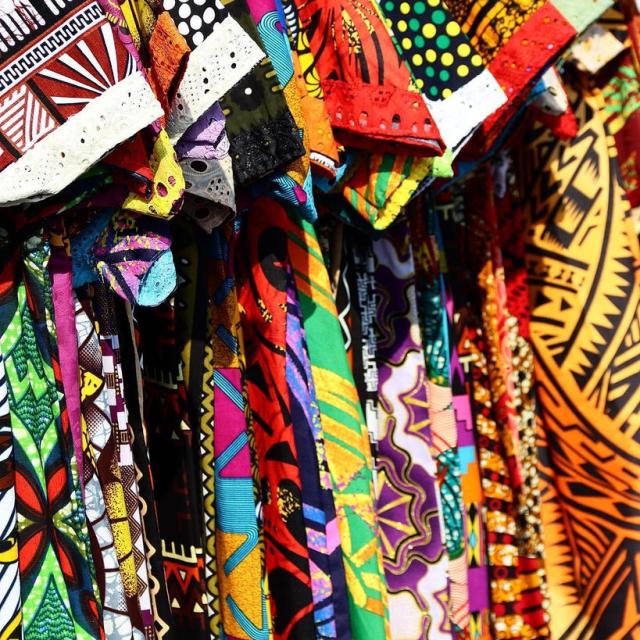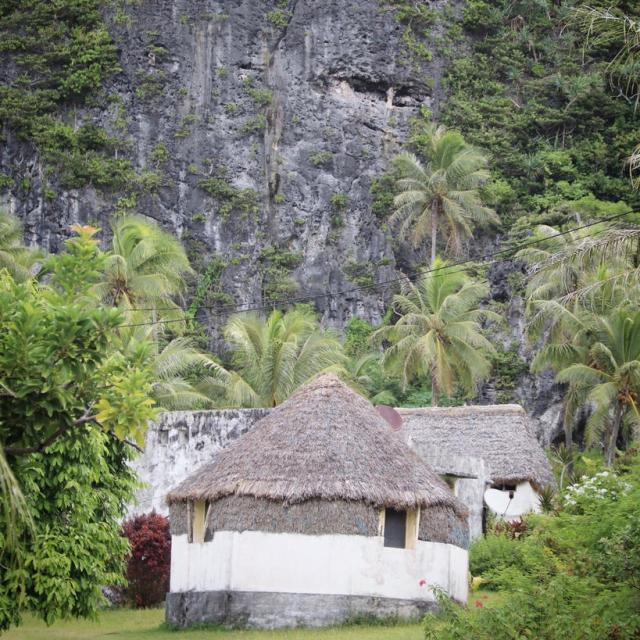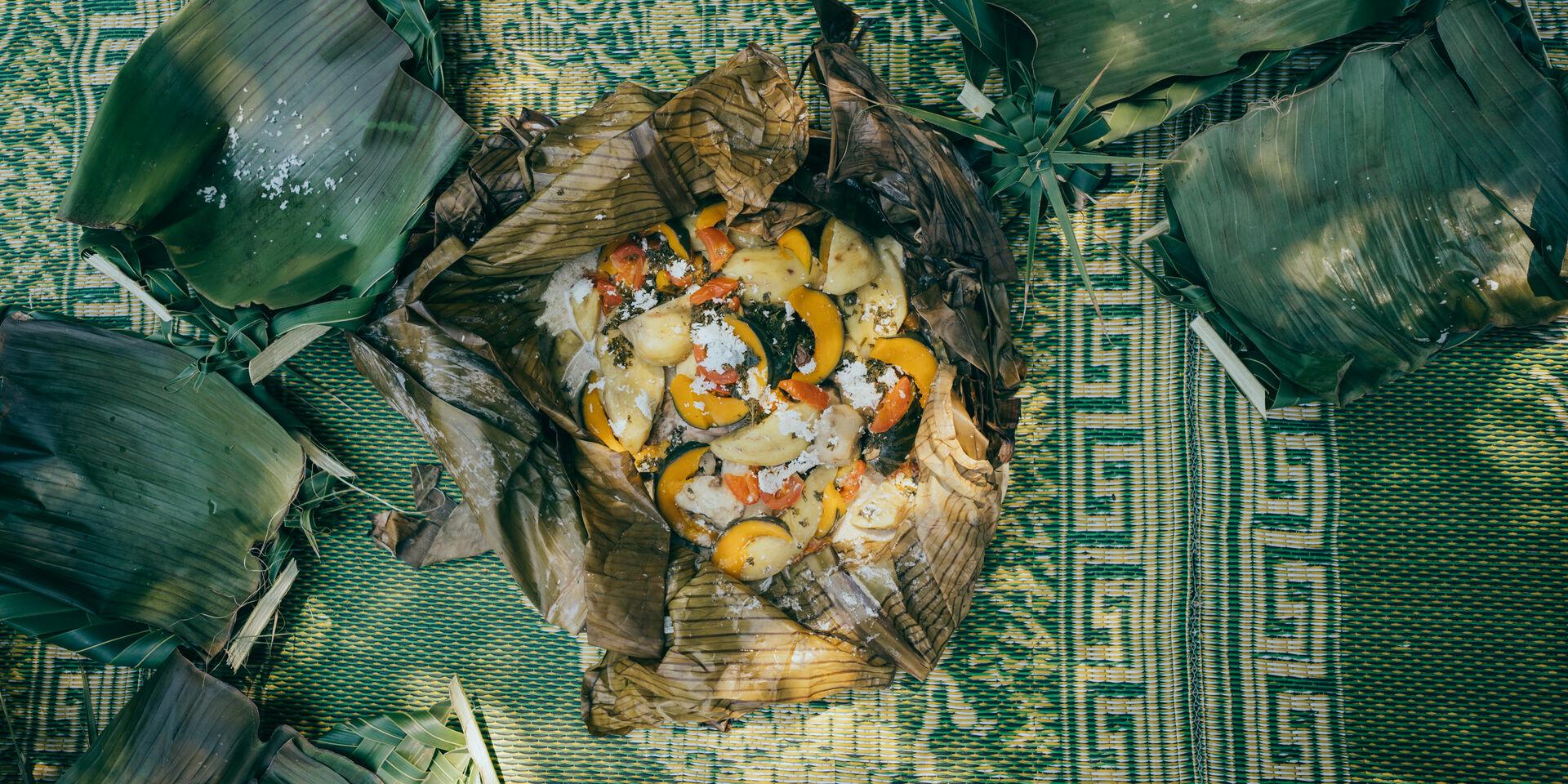 Traditional Kanak bougna
Traditional Kanak bougnaWhere to eat bougna?
What is bougna?
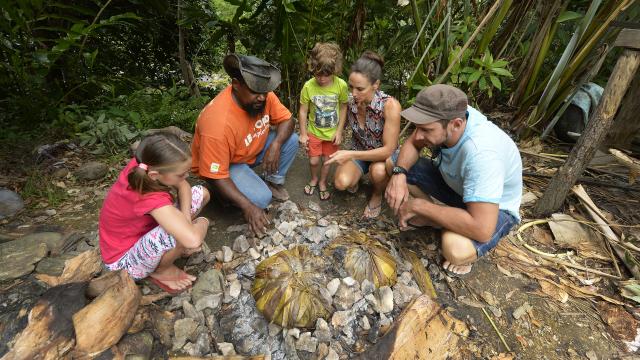 Bougna in Napoemien tribe, Poindimié
Bougna in Napoemien tribe, PoindimiéTypically prepared with a choice of fish or meat (chicken, pigeon, dogfish…), along with tubers like taros, sweet potatoes, or yams, and poingo bananas, the bougna is a delectable dish cooked in coconut milk encased in banana leaves, surrounded by hot stones. The delightful blend is seasoned with tomato, green onion, salt, pepper, and a touch of oil, garlic, and parsley. For those seeking a more convenient approach, there’s also a “marmite” version of bougna, where a large pot replaces the traditional Kanak oven, offering a quicker and simpler alternative to the traditional floor oven preparation.
In a Kanak tribe
Simple yet extremely satisfying, the bougna is deeply intertwined with tribal life, making tribal welcomes the ideal setting to savour this dish. Whether opting for tribal stays or table d’hôtes, especially along the Islands and East Coast, you’ll find the best opportunities to indulge in bougna. Given its time-intensive preparation, it’s advisable to inform your host at least 24 hours in advance if you wish to experience this traditional dish. Many tribal hosts also extend the invitation to participate in its preparation, using the traditional Kanak oven, notably in La Foa, Bourail, Yaté, Hienghène and the Islands.
At local festivals and fairs
 Traditional Kanak dance show in New Caledonia
Traditional Kanak dance show in New Caledonia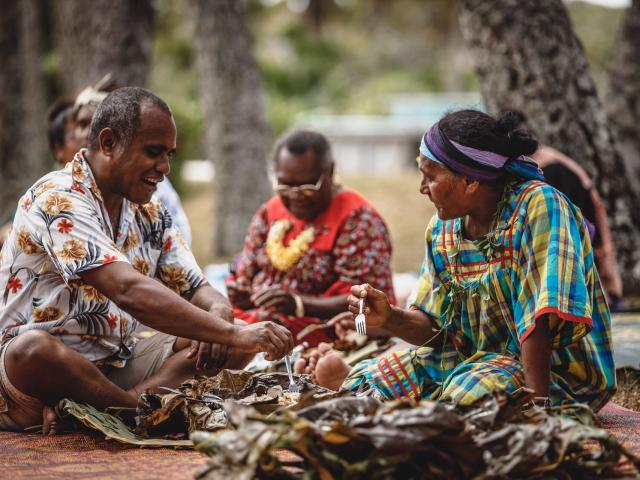 Sharing a bougna with a tribe in New Caledonia
Sharing a bougna with a tribe in New CaledoniaBougna embodies conviviality and is reserved for special occasions, prominently featured during Kanak festivals and ceremonies. An impressive example unfolds during the Fête de l’Igname in Lifou, where the Grand Chef of the Lössi tribe orchestrates the preparation of a colossal bougna, shared among participants. Each clan contributes essential ingredients to the communal feast. Before partaking in the yam-infused bougna, a customary ritual unfolds: the youngest member presents the first fruits of their field to their youngest sibling, a tradition mirrored as chiefs extend the gesture to their subjects within the clans.
Find out more about tribal stays
In hotel restaurants
 Local cuisine buffet in New Caledonia
Local cuisine buffet in New CaledoniaOriginally a tradition within Kanak tribes, bougna has transcended its cultural roots to appeal to a broader audience. Now featured on the menus of prestigious hotel restaurants in Nouméa, this dish has also made its way onto buffets and themed evenings hosted by hotels in both Brousse and the islands.


